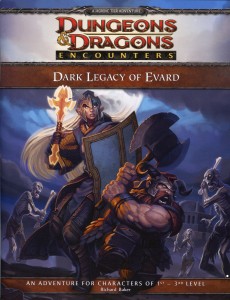Before diving into articles inspired by everything that happened at GenCon this weekend, we’re continuing our quest to find the best feats in 4e D&D. With over 3,000 feats available to level 1 characters, narrowing the list down to a cool 10 was no easy task.
We began with 32 feats and asked you to vote for the ones that you felt were the best. After dividing the list in half, we took the sweet 16 and further subdivided the list down to the top 10. Beginning today you can vote for the very best heroic tier feats currently available in 4e D&D.
We began this whole exercise when we realized that an overwhelming majority of players took the same core utility feats for their characters over and over again, regardless of their class or race. It made us wonder if some feats are just better than others. The answer has been a resounding yes.
